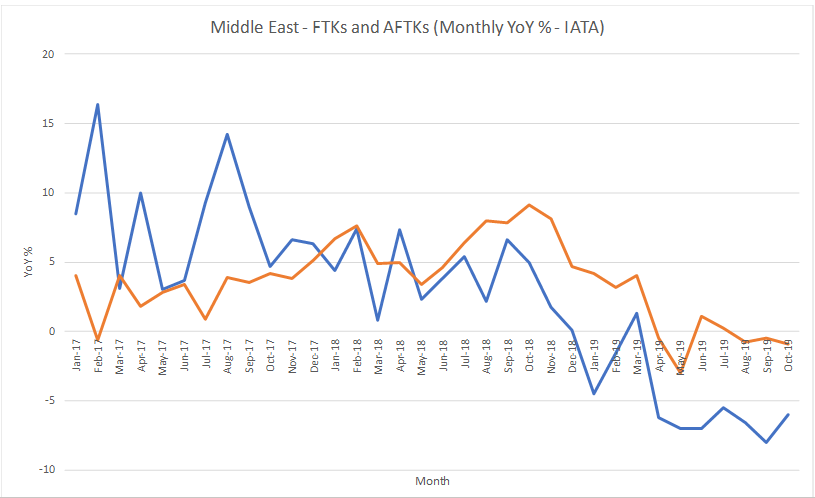No products in the cart.
Consultant Insight: Middle East outlook for 2020 is promising

A flurry of activity from forwarders and logistics providers has focused on the Middle East region of late. Kerry Logistics opened a new office in Bahrain as well as a new bonded logistics facility in Dubai. Meanwhile, DB Schenker and DHL Express, both of which took advantage of free trade areas around airports, opened a 33,000 square meter solar-powered distribution center in Dubai and broke ground on a 30,000 square meter express logistics hub in Abu Dhabi, respectively.
Long dependent on oil exports, Middle East governments have introduced a number of reforms to diversify the region’s economies as well as to improve and expand infrastructure to stimulate domestic demand and to become a major regional logistic hub. Among such infrastructure plans include free zones.
Dubai Airport’s free zone (DAFZA), for example, was established in 1996 and has proven successful as its foreign trade grew 12.0% in the first half of 2019. This growth was driven by 11.0% growth in re-exports and represented 21.0% of the total re-exports in Dubai.
By trade partner, India accounted for the highest percentage of DAFZA’s trade with 18.0%, at Dh14.1 billion (US$3.8 billion), followed by Switzerland with 16.4% at Dh12.8 billion and China accounting for 15.7% with Dh12.3 billion. Switzerland topped the list of countries in terms of re-exports from DAFZA by 27.0%, valued at Dh12 billion, a growth of 16.0% compared to the same period last year.
Abu Dhabi Airport Free Zone (ADAFZ) was established in 2010 and focuses on such industries as aviation, aerospace, IT and telecommunications, pharmaceuticals and light industries. Earlier this year, ADAFZ launched a One Stop Shop online portal, providing its customers with a platform on which to conduct online business transactions such as visa related requests, letter and certificate requests, employment cards and access passes, registration services, and licensing services. In addition, the group reduced business setup costs by more than 65%, with the aim of improving customer satisfaction, enhancing its regional competitiveness and attracting new sources of Foreign Direct Investment.
Such investments are expected to benefit the region with both the G20 Summit, scheduled to be held in Saudi Arabia, and the Expo, to be held in Dubai, in 2020. According to PwC, both events will have an economic impact but it’s expected that the Expo will have a much more significant impact. Expo 2020 is likely to attract millions of visitors between its opening day on Oct. 20, 2020 through April 10, 2021.
Forwarders and logistics providers alike should also benefit from both events, but UPS may be the biggest winner. UPS has been operating in the United Arab Emirates since 1995, and offers Express, Freight and Logistics services. It also operates 27 flights weekly, 16 of which connect the European Union and Asia through Dubai airport. In 2017, Dubai named UPS to handle the logistics operations for Expo. As the Official Logistics Partner, UPS will provide more than 27,000 square meters of warehouse space.
The challenge will be to ensure that the expected temporary uptick in economic activity driven by both events will successfully translate into long-term growth.
However, like the rest of the world, the Middle East is facing an economic slowdown. According to the World Bank, GDP growth was revised downward from an April estimate of 1.4% to a recent 0.6% for the region in 2019. For 2020, however, GDP growth appears more promising, rising to 2.6%.
A review of IATA data finds the economic slowdown has impacted international air cargo for the Middle East. Since the second half of 2017, volumes have declined while available capacity growth has outpaced volumes beginning in May 2018 and continuing as of October 2019. An optimistic GDP growth forecast from the World Bank should result in positive growth for air cargo in 2020.

The Middle East opportunity has always been great but, like other emerging markets, it is volatile. Despite government investments and legislation reforms, the region remains a risk for many international companies. Still, with risk often comes rewards and those that establish a presence in this region will benefit if managed accordingly.

















